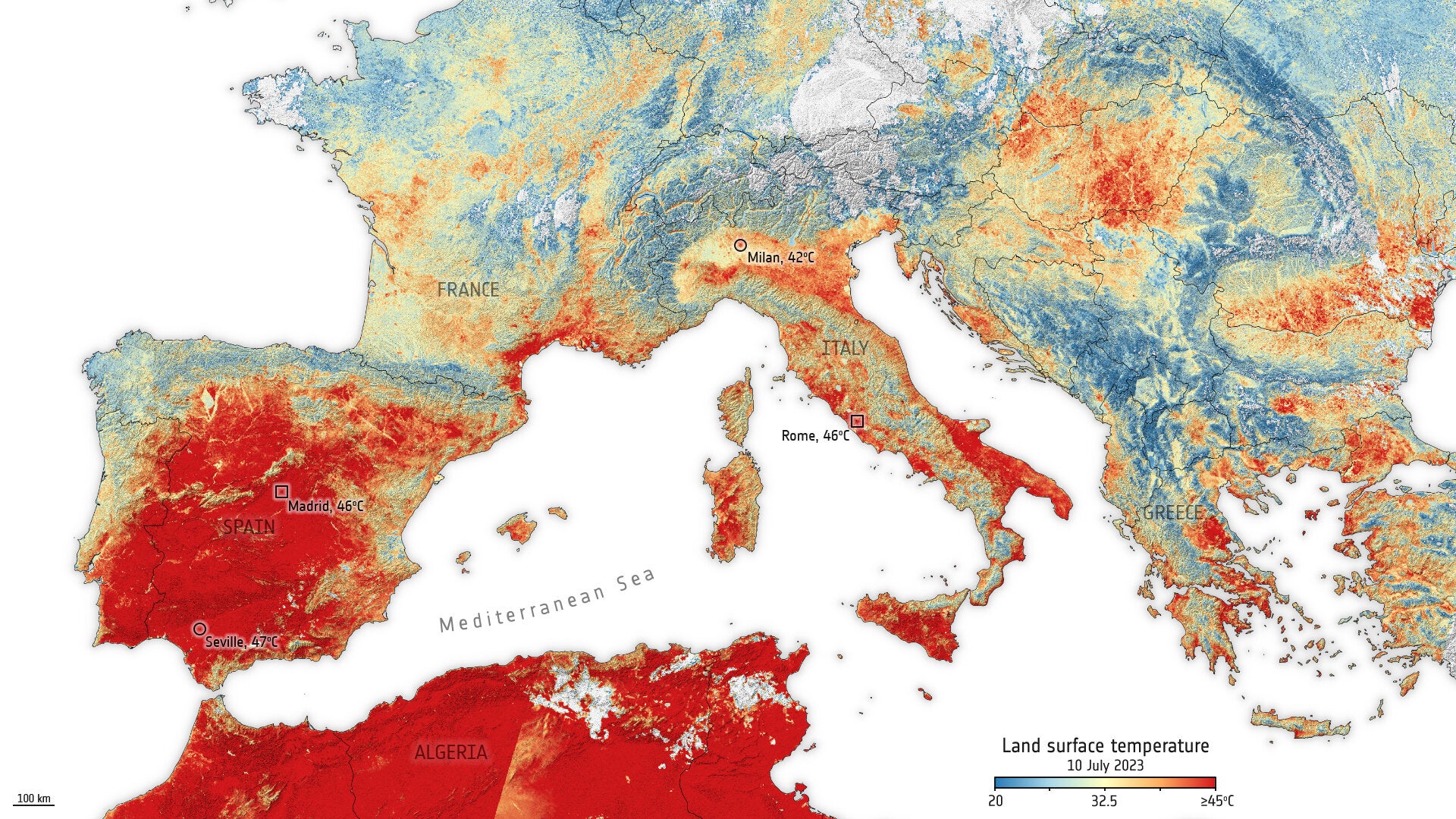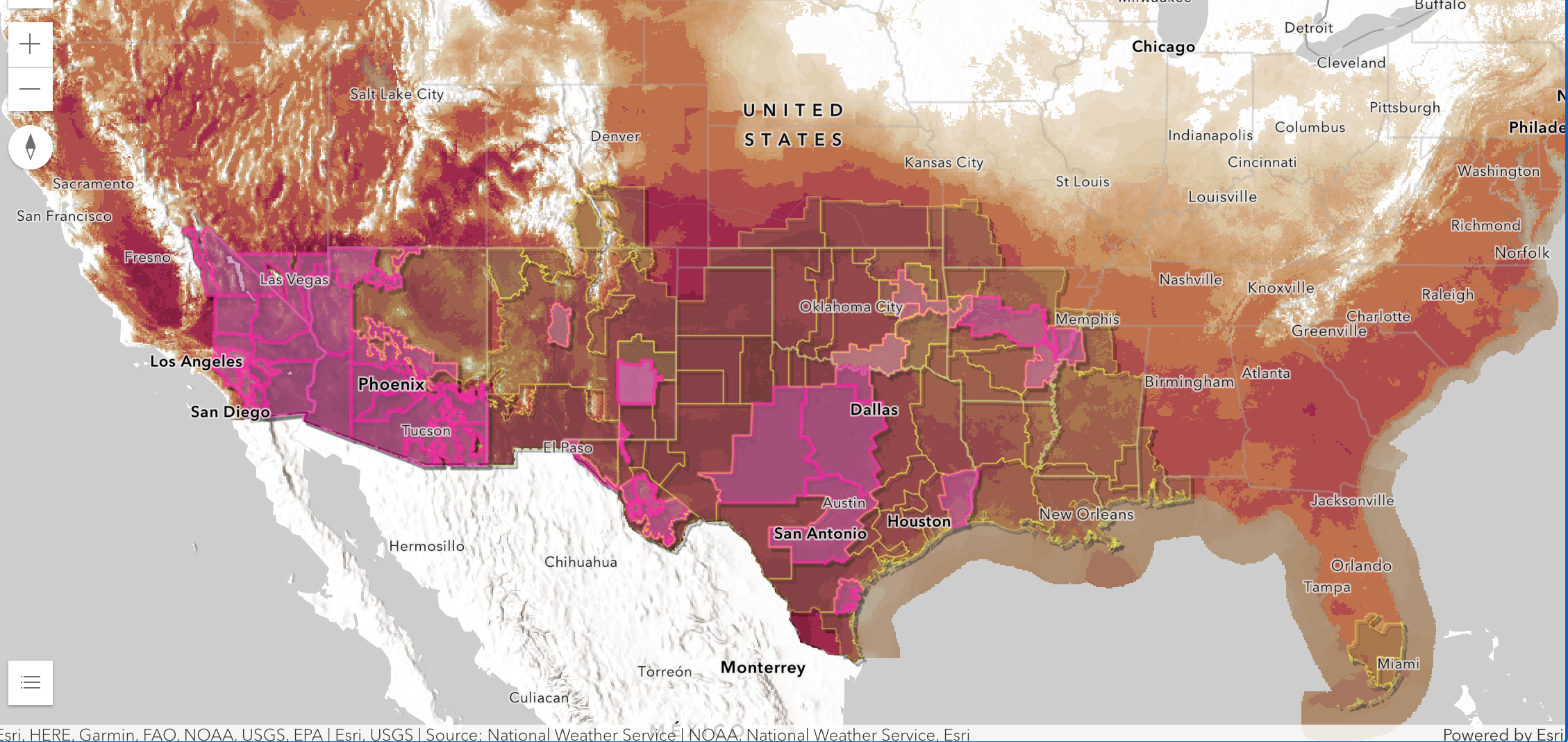Phoenix hits record of 19 days above 110F as planet boils under sweeping heatwaves
More than 100 million people under heat alerts in the US


Phoenix, one of the fastest-growing cities in the United States, hit a record-breaking 19th day in a row with temperatures of at least 110F (43C) on Tuesday.
Forecasters expect this week to be the hottest on record in Arizona’s largest city after weeks of extreme temperatures.
Historic heatwaves are sweeping the planet – a consequence of the global climate crisis which will cause temperatures to keep rising while humans burn fossil fuels.
More than 100 million people were under heat alerts in the US on Tuesday and dangerous extremes were being registered from coast to coast. Temperatures also climbed to triple-digits in Las Vegas, Nevada, west Texas, and California’s Central Valley.
Dangerous heat was building in the Southeast and along the Gulf Coast with heat index readings of 110F through Friday. In South Florida, well above normal sea surface temperatures and lighter than normal winds are contributing to stifling heat, the National Weather Service reported.
Death Valley National Park, which straddles the California-Nevada border, hit 128F (53.3C) on Sunday – just shy of some of the hottest temperatures ever recorded on Earth.
At Badwater Basin inside the park, the temperature highs barely broke overnight. A temperature of 48.9C (120F) was registered between midnight and 1am on Monday – a world nightime record, according to climatologist and weather historian Maximiliano Herrera.
Similar shifts are happening around the world with nights no longer cooling off, which means people have less time to recover from the hot days. The African continent experienced its hottest night ever recorded on 6 July, when the nighttime low in Adrar, Algeria, stuck at 39.6C (103.3F).
Around the world, public officials were warning people experiencing heatwaves to limit their time outdoors, use air conditioning where they could, hydrate and be mindful of impacts on young people, the elderly, pregnant, those with underlying conditions and pets.
Extreme heat kills more Americans than all other disasters combined while figures published last week revealed that heatwaves contributed to more than 60,000 deaths in Europe in 2022 – much higher than previously estimated.

Conditions this summer are being amplified by the still-emerging El Niño climatic pattern.
Dr Modi Mwatsama, head of capacity and field development at the health research foundation Wellcome, said that while the above-average Pacific Ocean temperatures were driving El Niño it was still early days.
“El Niño will likely continue to gain in strength as the year continues. And as it does, we will see more people’s health affected due to the increase in the extreme weather events that we’ll see,” she wrote, in an email.
“It is more important than ever that we put in place measures to limit the harm on our health. These can be simple solutions like providing shade and painting buildings white to reduce heat, to investing in early-warning systems for climate-sensitive infectious disease outbreaks such as cholera.”


Earth experienced its hottest June on record by a significant margin, and the first week in July was the planet’s hottest on record - an alarming milestone that climate scientists warned would likely be toppled soon.
China recorded its highest-ever temperature on Sunday with the remote township of Sanbao in Xinjiang hitting 52.2C – nearly two degrees above the previous record.
Italy has issued red alerts for 16 cities due to hot conditions with Spain, Italy and Greece reporting similar extremes. Meteorologists warned the deadly heatwave spanning Europe was likely to stretch into August.
The extreme heat and aridity have led to huge wildfires which forced the evacuation of holiday villages in Greece on Monday and saw more than 4,000 people evacuated from La Palma in the Canary Islands.
Smoke from wildfires in Canada is continuing to impact large portions of the US Southeast and New England on Tuesday.
It wasn’t only the extreme heat – sudden and extreme flash flooding struck again this weekend in the US and beyond.
Five people were killed, and a baby and a toddler remain missing, after cars were swept away by torrents of water on a Pennsylvania road.
In Vermont, authorities were fearful of landslides as rain continued after days of extreme flooding. In Mississippi, a flash flood warning was issued in Clarke County on Monday after a dam failed on Archusa Creek.
In South Korea, nine bodies were pulled from a flooded tunnel where around 15 vehicles were trapped in muddy water on Saturday as days of heavy rain triggered flash floods and landslides and destroyed homes across the country, officials said.
A total of 37 people have died and thousands have been evacuated since 9th July, when heavy rain started pounding the country.
Join our commenting forum
Join thought-provoking conversations, follow other Independent readers and see their replies
Comments



Bookmark popover
Removed from bookmarks